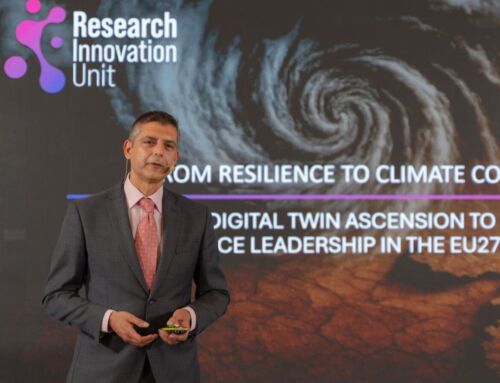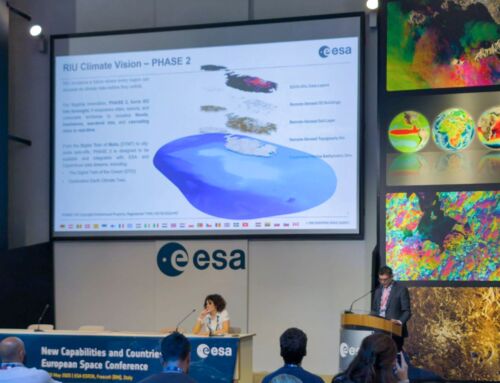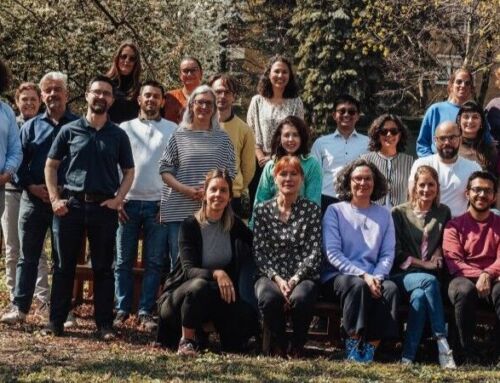The recently published EU Annual Report on the State of Regions and Cities for 2024 identifies critical areas for development in Maltese regions, with climate adaptation, digital transformation, and socioeconomic development emerging as key priorities. These findings necessitate a coherent strategy that leverages local expertise and fosters alignment with EU policies, ensuring that Malta remains resilient and competitive in the face of escalating environmental and socioeconomic challenges. The Research Innovation Unit (RIU) is uniquely positioned to act as a catalyst for regional and local solutions that respond to these recommendations, offering a holistic approach that combines policy alignment, legislative support, and innovative funding mechanisms to empower local stakeholders.
Key Challenges and Recommendations from the EU Report
The EU report highlights several pressing challenges for Maltese regions and localities, including climate vulnerability, digital skills gaps, and reliance on EU structural funds. As a Mediterranean island nation, Malta is highly susceptible to climate change impacts such as heat stress, water scarcity, and biodiversity loss. The report underscores the need for urban heat island mitigation strategies and enhanced green infrastructure to increase resilience. Additionally, Malta’s socioeconomic landscape is marked by rising housing costs, limited affordable housing, and a workforce that must continually adapt to maintain its digital competitiveness.
To address these issues, the EU recommends that Maltese regions:
- Develop comprehensive climate adaptation strategies focused on water management, biodiversity conservation, and heat stress mitigation.
- Invest in digital infrastructure and workforce upskilling to sustain economic growth and integrate advanced technologies such as AI and IoT.
- Strategically leverage EU cohesion and structural funds to address disparities and enhance social services.
- Promote affordable housing and urban planning initiatives to ensure social inclusion and economic equity.
- Strengthen democratic engagement by enhancing local participation in EU policy dialogues.
The Role of the Research Innovation Unit (RIU)
The RIU, established under Chapter 363 of the Laws of Malta, is designed to bridge the gap between regional needs and national and EU-level policy objectives. As outlined in its legislative framework, the RIU’s mandate i.e. Article 33 (1) q of the Local Councils Act, includes fostering innovation, supporting regional development, and facilitating the implementation of sustainable solutions. By aligning its strategic priorities with the EU’s recommendations, the RIU can serve as a pivotal regional and local solution provider, enabling Malta to tackle these complex challenges effectively at a local government level.
The RIU’s strengths lie in its ability to coordinate multi-level governance, leverage EU funding mechanisms, and support the deployment of bespoke local solutions. Its focus on promoting research, innovation, and technology adoption positions it as a key actor in driving Malta’s transition towards climate resilience and sustainable development. Through targeted initiatives, the RIU can facilitate the integration of climate adaptation strategies, promote digital innovation, and strengthen democratic engagement at the local level in a bottom-up setting.
Climate Adaptation and Environmental Protection
One of the most urgent areas for intervention is climate adaptation. The EU report notes that Malta is particularly vulnerable to extreme heat, water scarcity, and urban heat islands, making environmental protection and climate adaptation top priorities. The RIU, a key expert at EU level, can play a crucial role in spearheading initiatives to combat these challenges by supporting the development of hybrid green and ethical geoengineering infrastructure projects and promoting sustainable water management practices.
By collaborating with local authorities and communities, the RIU can implement solutions that are tailored to the specific needs of Maltese localities and relating regions, such as increasing the availability of green spaces, implementing smart water management systems, and promoting energy-efficient building practices. Furthermore, the RIU can facilitate access to EU climate adaptation funds, ensuring that Malta has the resources needed to build resilience against climate impacts.
Digital Transformation and Economic Competitiveness
The digital economy is a cornerstone of future socioeconomic development. While Malta has made significant strides in digital integration, the EU report highlights the need for continued investment in digital skills and public service transformation. The RIU, a pioneer in Digital Twin and smart city technology can address this gap and enhance the digital competencies of the administrative workforce, particularly in emerging areas such as artificial intelligence and data analytics.
The RIU’s role extends to supporting digital transformation within public services, thereby improving the efficiency and accessibility of government functions. By promoting the adoption of digital technologies across sectors, the RIU can help Maltese regions remain competitive in the global economy and ensure that public services are capable of meeting the demands of a rapidly evolving digital landscape.
Housing and Social Inclusion
Rising housing costs and limited availability of affordable housing are major challenges facing Maltese cities. The EU report calls for increased investment in social housing and urban regeneration projects to promote social cohesion and reduce economic disparities. The RIU can support these efforts by promoting sustainable economic models that attract both public and private investment into affordable housing initiatives.
Additionally, the RIU can facilitate partnerships between local authorities, private developers, and community organisations to design and implement housing projects that are inclusive and sustainable. By aligning these efforts with the EU’s Green Deal objectives, the RIU can ensure that housing solutions contribute to broader environmental goals, such as energy efficiency and reduced carbon emissions.
Enhancing Democratic Engagement and Governance
Strengthening local governance and enhancing local participation in EU policy dialogues are critical for ensuring that Maltese regions have a voice in shaping the future of Europe. The RIU can support this goal by promoting active citizenship and facilitating dialogue between local communities and EU institutions. By creating platforms for stakeholder engagement and providing training on EU governance, the RIU can empower local representatives to effectively advocate for regional interests at the EU level.
Moreover, the RIU can work closely with the Local Councils Association who represent the European Committee of the Regions to ensure that Maltese regions/localities are represented in key policy discussions, particularly those related to climate adaptation, digital transformation, and social cohesion. This collaborative approach will help build a stronger, more inclusive governance framework that reflects the diverse needs of Maltese communities.
The Research Innovation Unit is well-positioned to support Maltese regions in implementing the recommendations outlined in the EU’s Annual Report. By aligning its strategies with EU priorities and leveraging its legislative mandate, the RIU can drive local solutions that promote climate resilience, digital innovation, and social inclusion. Through targeted interventions and strategic partnerships, the RIU can ensure that Malta’s regions are equipped to meet the challenges of the future, contributing to a sustainable and prosperous European Union.
In conclusion, this editorial, thus, serves as both a roadmap and a call to action, highlighting the need for coordinated efforts at all levels of governance to address the complex challenges facing Maltese regions today. The RIU’s proactive approach will be instrumental in ensuring that Malta not only meets but exceeds its regional development goals, setting an example for other small island nations facing similar challenges.






